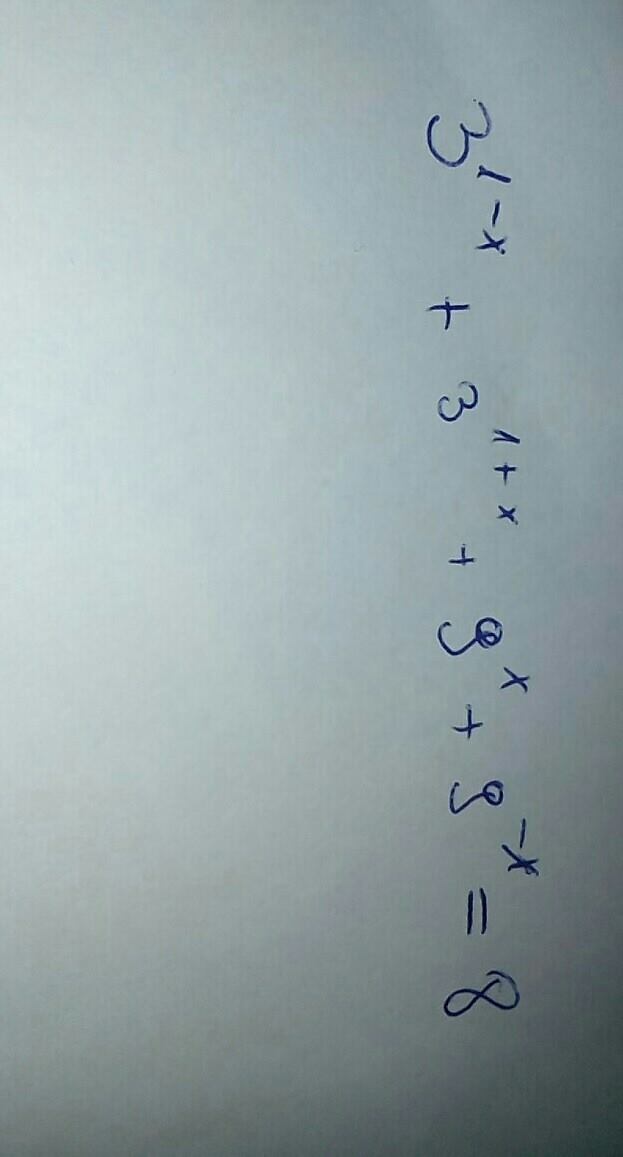.
#3^(1-x)+3^(1+x)+9^x+9^(-x)=8#
#3(3)^(-x)+3(3)^x+(3^x)^2+(3^x)^(-2)=8#
Let #u=3^x#:
#3u^(-1)+3u+u^2+u^(-2)=8#
#3/u+3u+u^2+1/u^2=8#
#(3u+3u^3+u^4+1)/u^2=8#
#u^4+3u^3+3u+1=8u^2#
#u^4+3u^3-8u^2+3u+1=0#
Using rational roots method, we notice that #a_0=1, and a_n=1#. Therefore, possible roots are #+-1/1=+-1#.
Trying #u=1#, we get:
#1^4+3(1)^3-8(1)^2+3(1)+1=1+3-8+3+1=8-8=0#
This indicates that #u=1# is a root. We can either use long division or factoring to factor #u-1#. We will use factoring:
#u^4-u^3+4u^3-4u^2-3u^2+3u-(u^2-1)=0#
#u^3(u-1)+4u^2(u-1)-3u(u-1)-(u+1)(u-1)=0#
#(u-1)(u^3+4u^2-4u-1)=0#
We need to factor the second expression. Using rational roots method, we find that possible roots are #+-1#. Let's try #u=1#:
#1^3+4(1^2)-4(1)-1=1+4-4-1=5-5=0#
This indicates that #u=1# is a root. Again we use factoring:
#(u-1)(u^3-u^2+4u^2-4u+u^2-1)=0#
#(u-1)[(u^2(u-1)+4u(u-1)+(u+1)(u-1)]=0#
#(u-1)^2(u^2+4u+u+1)=0#
#(u-1)^2(u^2+5u+1)=0#
#(u-1)^2=0, :. u-1=0, :. u=1#
Let's substitute back for #u#:
#3^x=1#
We take natural logarithms of both sides:
#ln3^x=ln1#
#xln3=ln1#
#xln3=0#
#x=0#
#u^2+5u+1=0#
We use the quadratic formula #u=(-b+-sqrt(b^2-4ac))/(2a)#:
#u=(-5+-sqrt(25-4(1)(1)))/(2(1))=(-5+-sqrt21)/2#
#u=(-5+sqrt21)/2#
#3^x=(-5+sqrt21)/2=-0.21#
This not possible because #3^x# can not be negative.
#u=(-5-sqrt21)/2#
#3^x=(-5-sqrt21)/2=-4.79#
Again, this is not possible.
Therefore, the only valid answer is:
#x=0#



